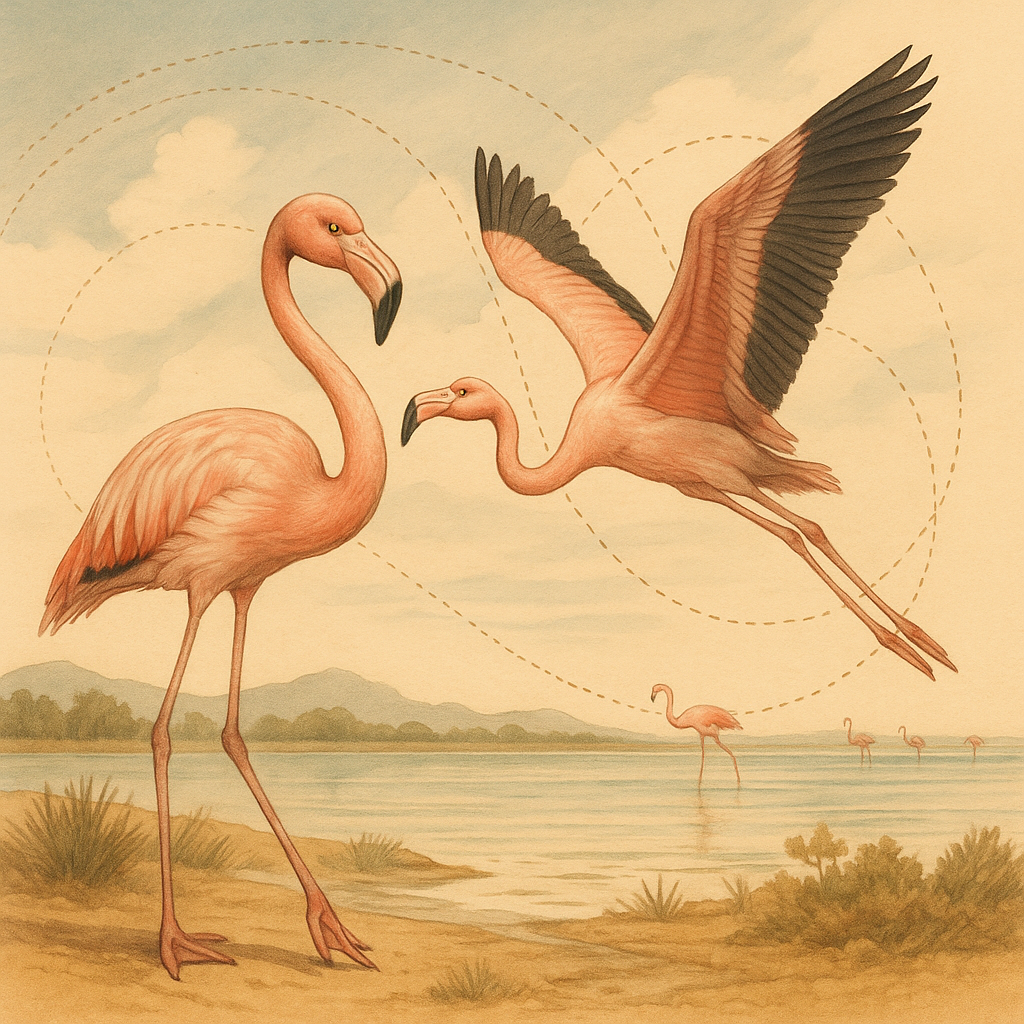
Flamingos and Aging: A New Scientific Discovery
Flamingos and aging are now at the center of groundbreaking research. A study in the Proceedings of the National Academy of Sciences reveals that migration may shape the way flamingos grow old. Scientists studied the greater flamingo (Phoenicopterus roseus), a symbol of the Camargue wetlands in France, to uncover how migration influences the pace of aging.
Migratory Flamingos Age More Slowly
Tracking data collected over 40 years by the Tour du Valat research institute shows surprising results. Resident flamingos, which stay in the Camargue all year, thrive early in life. They reproduce more and survive better at first. However, they age faster and face higher mortality later in life.
Migratory flamingos, on the other hand, struggle at the beginning. Their journeys across the Mediterranean to Spain, Italy, or North Africa lower survival and reproduction rates early on. Yet, they age more slowly and live longer. On average, residents show signs of aging at 20.4 years, while migrants reach 21.9 years before decline.
Migration and Aging in Animal Populations
This study highlights how migration, a behavior shared by billions of animals, affects senescence. As CNRS researcher Sébastien Roques explains: “Residents live intensely at first but decline faster. Migrants pay the price early, yet they benefit from slower aging later.”
With lifespans of over 50 years, flamingos offer a rare opportunity to study flamingos and aging. Long-term monitoring since 1977, with birds tagged by rings visible from telescopes, has created a unique dataset for understanding animal longevity.
Unlocking the Secrets of Aging
The research connects to a broader scientific quest: understanding senescence. Dr. Hugo Cayuela of Oxford University explains that for centuries, scholars believed aging differences occurred only between species. Now, evidence shows that even within one species, individuals age at different rates due to genetics, behavior, and environment.
By examining how flamingos live, migrate, and die, scientists move closer to answering a profound question: why and how do living beings age?
About Tour du Valat
The Tour du Valat institute, founded in 1954 by Luc Hoffmann, is dedicated to Mediterranean wetland conservation. Based in Camargue, France, it combines ecological research and sustainable management. Its work proves essential not only for wetlands but also for advancing knowledge on migration and aging in wildlife.






